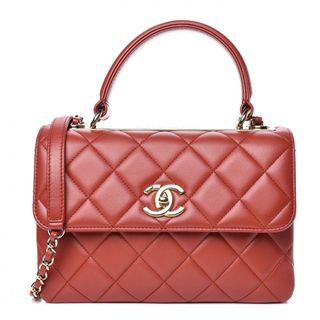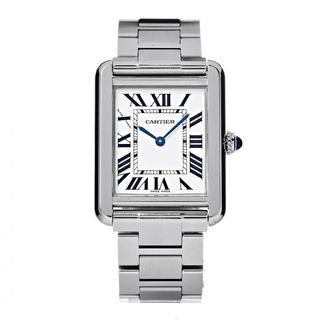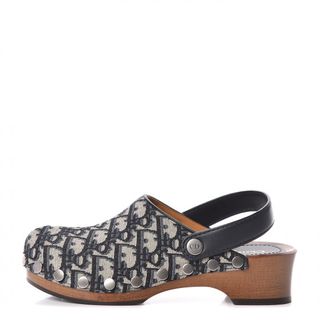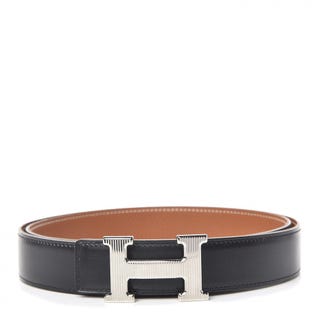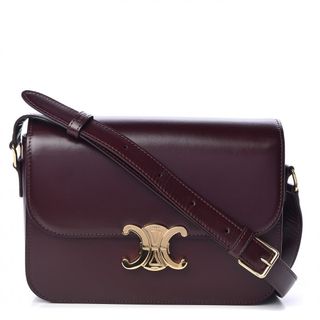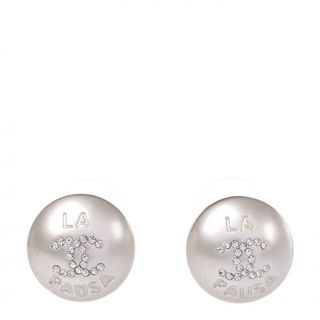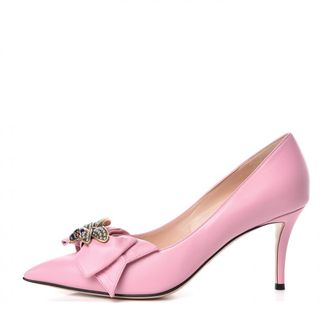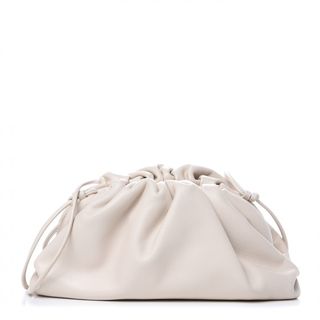As a full-time law student in the late ‘90s, Sarah Davis found moon-lighting as an eBay vendor could earn her some extra cash, offsetting the burden of steep tuition and living expenses. She began selling old pairs of Gap overalls and Doc Martens that she no longer wore. “I was shocked that people were willing to spend money on things I was getting rid of!” she says now.
After several months of selling on the site, she began noticing that the more luxurious the brand, the better it kept its value. She’d frequent her local Neiman Marcus Last Call and Off Saks stores, finding great deals on designer pieces and scooping them up either for herself or her eBay clients. “My whole life, I’d go to these establishments and I’d be like, Wow, that’s an awesome fill-in-the-blank, but I’m not a size zero, so I would just leave it there,” says Davis. “Eventually, I began saying, Wow, that’s a really cheap Prada dress that’s a size zero and I could buy it and sell it on eBay.”
Davis recalls the marketplace in a pre-digital world: taking product pictures on 35mm film and developing them on a floppy disk; receiving physical checks in the mail and waiting for them to clear before shipping items out to buyers.
After graduation, Davis pivoted from law, instead following her passion of selling second hand luxury accessories full-time. Those early days of eBay selling taught her that taking a chance on the unknown can often reap rewards. She launched her site Fashionphile in 1999. “I chose to start and grow this business the old-fashioned way: fully bootstrapped with no outside investment. I maxed out my personal credit cards and invested every dollar I made back into the business,” says Davis. Pre-dating today’s competitors in the resale market, like The Real Real, Rebag, and thredUp, Fashionphile pioneered the re-commerce approach to luxury handbags and accessories. “The truth is that not starting Fashionphile when I did would have been the biggest risk of all. Building a solid authentication foundation and pricing strategy took time. Not getting in first would have been the biggest threat for someone who wants to do it the right way,” Davis points out.
A loyal customer base enabled Davis to expand into brick-and-mortar, opening her first showroom in Beverly Hills in 2008, a San Francisco location in 2010, and several others throughout the decade. “Those showrooms were really working for us, so we had a plan to extend that out,” says Davis. Coincidentally, Neiman Marcus was also looking to extend into the second-hand market, after an in-house study revealed that a significant number of Neiman Marcus clients were already participating in the purchase of pre-loved pieces elsewhere. They approached Davis with an opportunity to help expedite the opening of new Fashionphile showrooms—this time inside the four walls of Neiman Marcus locations.
“You can walk up to the Fashionphile counter, drop off a couple bags, a belt, and a pair of shoes—whatever you’ve got—and then you go shop, or you go to the cafe and have lunch with your girlfriends, and you’ll get an alert on your phone that says you have $3,000 waiting for you,” explains Davis. If you spend that money in Neiman Marcus, they’ll give you 10 percent more. Four showrooms opened in 2019, with plans for the next batch to open sometime this year, contingent upon the reopening of Neiman Marcus retail locations, post-coronavirus lockdown. Exact timing is still TBD.
The partnership offered Neiman Marcus access to Fashionphile University, a unique training program that specializes in the acquisition and authentication of luxury pieces. Each authenticator is trained in specific luxury brands: “If our team certifies you to authenticate Chanel and we get an Hermès item, you can’t authenticate that item,” says Davis. Counterfeit products go to the “fashion graveyard” at Fashionphile HQ in Carlsbad, California, to be used for future authentication research.
With the recent closing of retail stores nationwide because of the coronavirus pandemic, Davis has been running the company from home. “Our entire operation is a white glove service that requires operators receiving, authenticating, reviewing, photographing, storing, and shipping physical product. This isn’t something that’s possible during a full lock-down situation,” says Davis. The silver lining, however, was the opportunity for the brand to focus on features Davis had talked about for years, but had been lower priority compared to growing the physical presence.
On April 3, Fashionphile launched one of those features, the virtual appointment service—a newfangled response to the uptick in homebound luxury devotees. Sellers can now schedule virtual consultations with Fashionphile experts who will digitally evaluate accessories and provide quotes, a critical part of the business that took place only in-person prior to Covid-19. “Go through your closets! We’re home, we’re bored, and people are looking for distractions,” says Davis. “Even if people are not really buying, sometimes scrolling mindlessly through pretty things helps. We’re happy to give people that.”
•••
For more stories like this, including celebrity news, beauty and fashion advice, savvy political commentary, and fascinating features, sign up for the Marie Claire newsletter.
subscribe here






